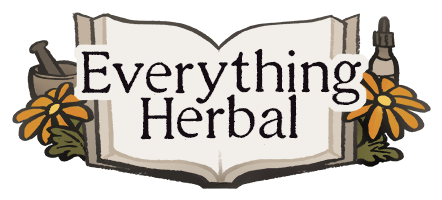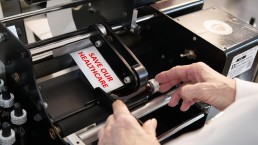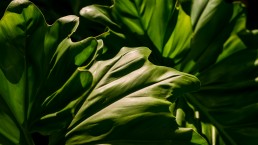Your Access to Herbal Healthcare in Canada is About to be Permanently Restricted!
Your Access to Herbal Healthcare in Canada is About to be Permanently Restricted
At Everything Herbal, we believe that access to natural healing is an inalienable right of all people. Herbal medicine has been used since time immemorial by all cultures, across every continent of the earth. Even today, countless numbers of people from across the world rely on herbalism and allied systems of traditional healing as their primary form of medicine. We believe that the use of herbs, and of all natural products, should not be made a criminal offence, or something that only the rich and powerful have a say over.
And yet, efforts are underway by Health Canada to make it extremely difficult, if not impossible, for many practitioners and manufacturers of quality natural health products (NHPs) to provide their services to the Canadian public.
The upcoming proposed changes to the regulation of NHPs in Canada will impose massive undue costs on consumers, costs that have no precedent or justification whatever. These changes will force many of the local and small scale suppliers of herbs and supplements that you rely upon, to permanently close, as well as completely barring access to the industry by up-and-coming, hardworking, dedicated and creative innovators. If passed, these changes will ensure that the future of herbal medicine in Canada will not be grassroots and local, but corporate and industrial.
The long and short of it is that we are on the precipice of a takeover of the natural health products industry by global corporate interests –
– by those who have little to no regard for anything other than monopoly and profit. The range of available health products will be significantly decreased, and the care that many healthcare practitioners will be able to provide to their patients will consequently suffer. Your freedom of choice will be restricted, and your rights to seek out natural healing options pushed further out of reach.
We encourage our readers to become involved in the ongoing to campaign to stop these changes before it is too late. What Health Canada is proposing will change the face of natural healing practices in Canada, and is an affront to traditional systems of healing and those who rely upon them for their health and well-being. If passed, these proposed regulatory changes will undermine our fundamental human rights to freely seek out the bounteous medicines of the earth.
It is important that as many of us as possible become involved. By far the best thing that you can do personally is to speak directly with your Federal MP. Ask for a meeting and/or write to them directly – particularly if you depend on these remedies to maintain your good health. Send a letter – it’s hundreds of times more effective than an email!
For more information concerning this issue, and further suggestions as to how you can get involved, can be found through the following campaigns:
https://www.saveoursupplements.ca
https://nhppa.org
The Story of the Haiti Naturopathic Clinic: An Interview with Julia Graves
Emergency Medicine and Disaster Relief in Haiti
Welcome to an interview with Julia Graves! This interview was conducted by Victor Cirone with photos used with permission from Julia.
This interview was conducted on May 27th, 2021, before the assassination of Haitian president Jovenel Moïse, and before the recent, devastating earthquake of August 18th. Julia is currently coordinating fundraising efforts for the earthquake victims and to help support the vital work that is carried out by the disaster relief clinic that is the focus of this interview. To find out more about how you can help, and for updates on the current situation in Haiti, please see the clinic website and subscribe to their newsletter: haitinaturalclinic.org
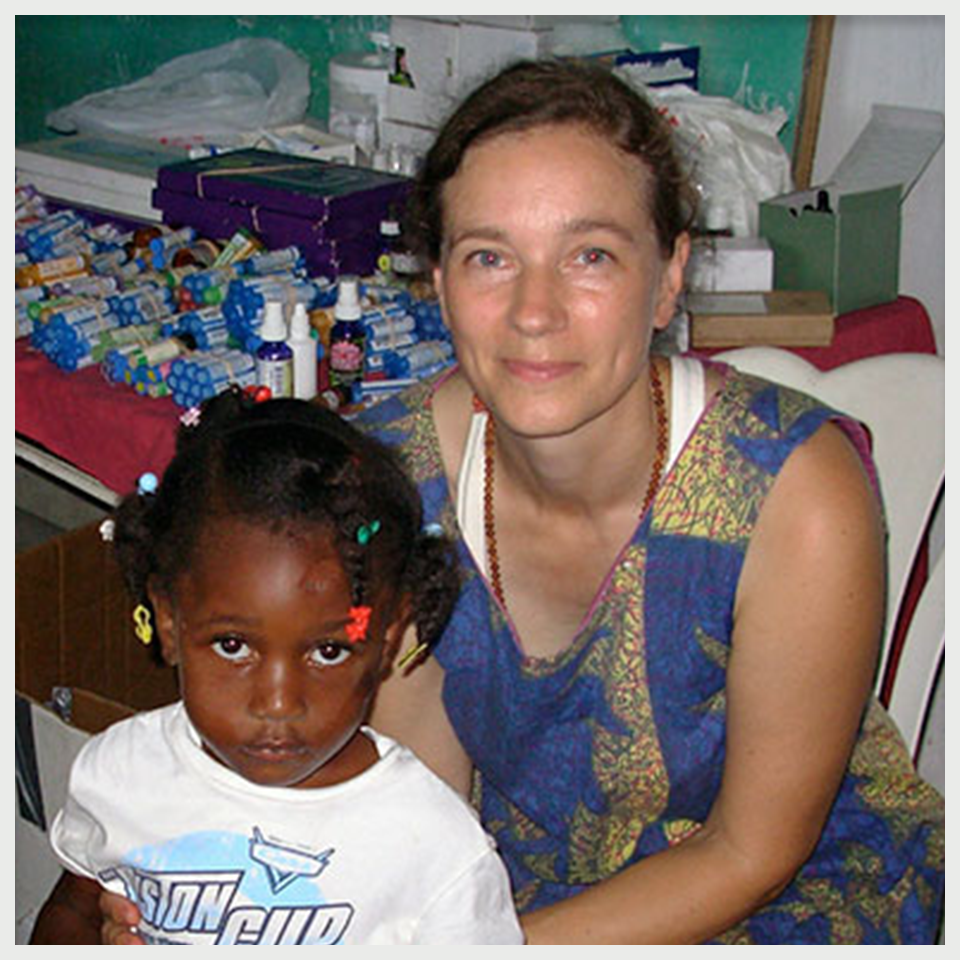
Victor: What can you tell us about the trajectory of your life and work, and specifically how you got to where you are working in Haiti?
Julia: The moment of us starting the clinic in Haiti is, in a way, the culmination of my life up until that point. I was raised by an herbalist mother and an orthopedic surgeon father, so I’ve worked between the paradigms of conventional medicine and plant healing. Then I trained four years of medical school and as a psychotherapist, and I always continued to work with plants and natural healing. I had at that point, when the great earthquake struck Haiti, at least 30 years of experience of working with herbs, flower essences, aromatherapy, and homeopathy. Because it was my partner’s [Jacquelin Jinpa Guiteau] home, and his father got injured in the earthquake, it became very compelling to go and help. If you remember, it was an underwater earthquake, so the epicenter was off the coast, under the ocean, about 3km out – Jinpa’s parents’ home was exactly 3km on the shore. His father fell and injured his shoulder, but we couldn’t send him any help, and we couldn’t go there because all flights had been stopped. As soon as the first airplanes were allowed back into Haiti, he went to just see the situation and said, ‘if I go I would like to help people who are in need of medical care, could you put something together for me as a first aid kit?’ Which is what I did. 48 hours later he called me and asked if I could join him immediately (I was in France) and bring $10000 in donated cash and two suitcases more full of natural medical supplies. 24 hours later I was in New York to pick up the cash and more than 2 suitcases worth of donated supplies, and in 48 hours I was in Haiti, in the rubble. And that’s how it all started.
I do want to add one thing: all of my experience went into a precise concept of the clinic. I had a very clear idea that homeopathy would be great: it’s tiny, it’s light, you can give one pellet per person, and so with a tiny amount you can treat the masses. If need be, you can succuss more, you can dilute and potentize more. Similarly with essential oils, you can do a lot with very little. Although I’m very much an herbalist, I was very clear that trying to stuff dried herbs into your suitcase, or bottles and bottles of tinctures is just not ideal for an emergency situation. So, based on my background, I clearly favored homeopathics and essential oils and that was the bulk of what I brought initially.
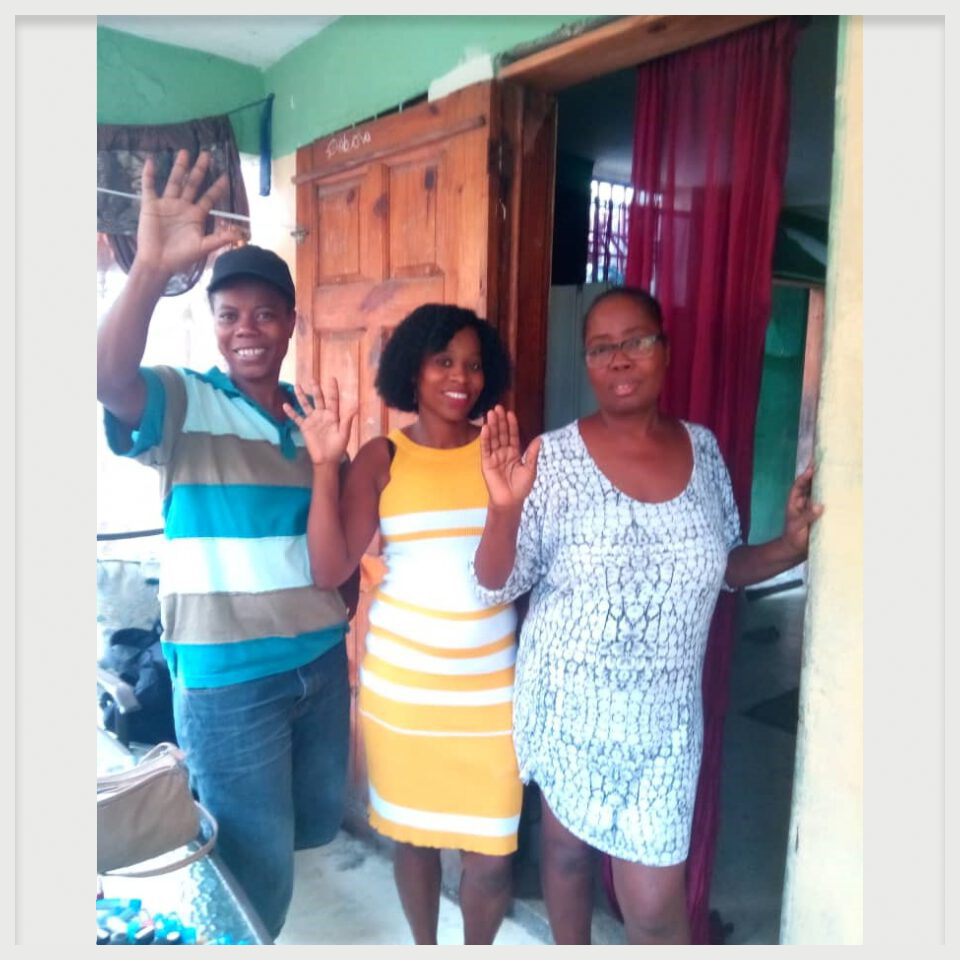
V: Most of the audience who will be reading this interview will have more of a background in herbal medicine than they will in homeopathy. At least in North America, there is still a fairly strong divide between herbal medicine and homeopathy. There are some herbalists that I’ve encountered who have even expressed suspicion or outright disdain for homeopathy, claiming that there’s no way it has any real efficacy, that it lacks scientific legitimacy, etc. Can you tell us more about the protocols that are used in the clinic and why homeopathy is so important to the work you do there, beyond how easy it is to transport homeopathic remedies and how cost effective they are?
J: Let me first talk a little about why I brought essential oils. First of all, we as herbalists quite rightfully assume that we can use the essential oil of chamomile in a similar way to chamomile tea or tincture. It is very easy to make that transition when you are faced with an emergency situation where you can’t put a lot into your suitcase, and so, take a variety of essential oils. The other thing is that essential oils are highly antiseptic – they kill everything, as it were: antibacterial, antiviral, antifungal, antiparasitic. Most essential oils are the first three, and some also end up being antiparasitic. When we reached Haiti, the streets were so cracked open, everything had fallen to pieces, and the stench in the air of the rotting bodies was just unfathomable. In such a situation, you want something that is very, very ‘anti-everything.’ On top of that, to purify the air from germs, you want to use essential oils. You can spritz them, you can leave them out, and you can literally disinfect the air around you in that way. It was very good for us as healers to be in a situation like that where we could handle substances that served to protect us from disease. We still got horrific diarrhea, but there wasn’t even anything close to clean water available at that point.
For me, I can understand that most herbalists cannot understand homeopathy. There’s an element of mystery to it. You can’t understand how it can possibly work. I trained very young in homeopathy, when I was 19. By the time I went to Haiti I had tons of experience using homeopathy in emergency situations. I had lived in India for 3 years where I trained at the Tibetan monastery that is next to the Dalai Lama’s palace in Dharamshala, and there is no medical care for the little boy monks there. So I was treating a lot of these boy monks and people in India who were in very desperate situations, including lots of animals and lots of babies, so I knew for sure that you don’t have to believe in homeopathy for it to work. I had treated people who can’t speak because they are babies, I treated animals, people who can’t speak the same language as me, who have no understanding of what I’m putting into their mouths, and I had seen incredible results in very poor hygiene type of environments. I had complete confidence, I had my baptism by fire, what the horse rider experiences when they fall off the horse for the first time – I had already been through that. At the point I came to Haiti nobody could have talked me into the idea that homeopathy is not effective. And I was already very experienced treating myself and others, so for me it was just a no brainer, especially when it comes to vulneraries, injury remedies, or things for acute and superficial issues such as disease from dirty water – diarrhea and vomiting – I had tons of experience treating that in India.
To take another common scenario we encountered in Haiti: being sick as a consequence of sleeping outside in the cold. When we got to Haiti it was March, the earthquake was in January, so everybody had been sleeping in the streets in February when it is quite cold, and we have this wonderful remedy in homeopathy called Aconite, which is also used in Chinese medicine to warm people up, for diseases from cold. There are wonderful homeopathic remedies from the Artemesia genus of plants, which are also used in herbalism, for the treatment of worms and parasites. In underdeveloped countries virtually all children have worms. We could discuss many other common scenarios and the relevance of homeopathic medicine in dealing with them. Based on my previous experience, I already knew what I was going to need and want. We had anticipated injuries, coughs and colds and the usual stuff such as malaria and yellow fever; but we hadn’t anticipated the mind-blowing amount of vaginal infections, which had nothing to do with the earthquake per se, but with poor hygiene and dirty water. And for that we then had to work out a treatment protocol.
Lastly, just to add one more reason explaining why the homeopathic approach was so great in this context, especially in the initial years, was to treat street children: You cannot give a homeless three year old who lives in the street anything herbal – a bottle will be lost almost immediately, they have zero access to potable water, let alone a fire or tea kettle so herbal teas are out, etc. I was incredibly grateful to have a reliable and powerful method where I could give the child one single dose right into their mouth and know it could cure whatever ill was at hand (worms, influenza, head trauma), with the higher potencies’ action lasting for weeks and months.1
V: I remember that in one of your previous newsletters, you talked about a traditional Haitian practitioner, a herbalist and bonesetter, and I remember that you said in that piece that the Haitian people were somewhat skeptical of working with him, that they didn’t believe that he had the healing abilities that he did. Can you talk about the attitude of the Haitian people when it comes to disease and healing generally, and about traditional Haitian healing practices in particular?
J: We literally had to start the clinic by putting a table and four chairs out. There was Jinpa on one side being one of the doctors, me on the other side being the other doctor, with a second chair for each of the patients. We immediately had 300 or more people a day, between 300 and 500. The most we could treat on a given day was 500. There was a lot of skepticism. People were desperate because there was no medical help at all available to them; you have to understand that the medical system in Haiti is such that when people can’t pay, there are zero medical services available to them. We were in the city of Port-au-Prince because the epicenter hit there. There are no wild plants there. In the Haitian countryside there is still traditional herbal medicine available. People were very skeptical of us because first of all they had very bad experiences with large organizations such as the Red Cross. There are two main things we heard over and over again: the first was that people didn’t want to stand in line and wait to be treated because, as they said very suspiciously, ‘are you going to force vaccinate us?’ and we explained that we don’t even have syringes here, everything is natural, we use plants. And the reaction then was ‘oh, then I’ll stay in line.’ So there was tremendous skepticism towards being forced vaccinated, which is part of the International Red Cross’ way of doing things, apparently.
Then they were very surprised that we actually spoke their language rather than them not being able to communicate with us at all. They liked that. The second thing that made them very gun shy, quite literally at first, was that the other organizations, even Doctors Without Boarders, usually have a building that is guarded by soldiers with machine guns. People are reluctant. They were literally looking around and scoping out the place, wondering ‘where are the soldiers with machine guns? Oh they don’t even have protection, now I feel safer waiting in line.’ The third thing that made them gun shy was that there was a practice, a very widespread practice, of dumping expired pharmaceuticals into Haiti which has been stopped since then. The government made this practice illegal and now checks expiration dates on pharmaceutical drugs coming into the country. There has also been a kind of undercover testing of non-licensed drugs in Haiti. People who were coming to the clinic kept saying ‘we get things that are expired, we go to the hospital, they give us an injection, and we get so sick.’ We heard that over and over again. So all of that was overcome the moment we said ‘no, no we only use plants and we don’t have injections’ and whatever we gave them also looked nothing like a pharmaceutical drug. That was one kind of very strong caution and mistrust we had to overcome.
And then there was the caution and mistrust that they harbored in regards to their own tradition. Of course because they have been brainwashed by modern media, education, and all of that, the herbs grandma uses are not good. We tried to role model to them that healing with plants is okay. We knew that the husband of one of the women known to Jinpa’s family was a traditional herbalist, midwife and bonesetter, all wrapped into one. We asked him to come in and do his work. We checked it out and he was really quite knowledgeable and had a lot of very helpful things that he was able to do that we couldn’t. For example, he knew exactly what kind of a poultice to use on children no older than 2 years old in order to heal inguinal hernias. We didn’t have anything like that, where you could just take a few drops of a medicine and the hernia is gone. And he was able to touch a pregnant woman’s belly and could check if she was carrying one or two babies, if they were in the right position, if everything was generally okay with the baby, the position of the placenta, if the woman needed pelvic adjustment – he could do those things that we weren’t trained for from within the traditional context and it helped people have confidence in their own traditions again. They really liked the treatment and we often overheard them when they were leaving saying ‘oh yeah I have a person like that in my neighborhood, maybe I could go see them.’ We tried to really not be like the Red Cross, which has come in from the outside totally detached from the local culture, from traditional Haitian medical thinking and understanding, from their language use and using products that come from elsewhere and were threatening. It was very important that we create an interface with the people, their culture, their language, their healing traditions. That was very much our aim.
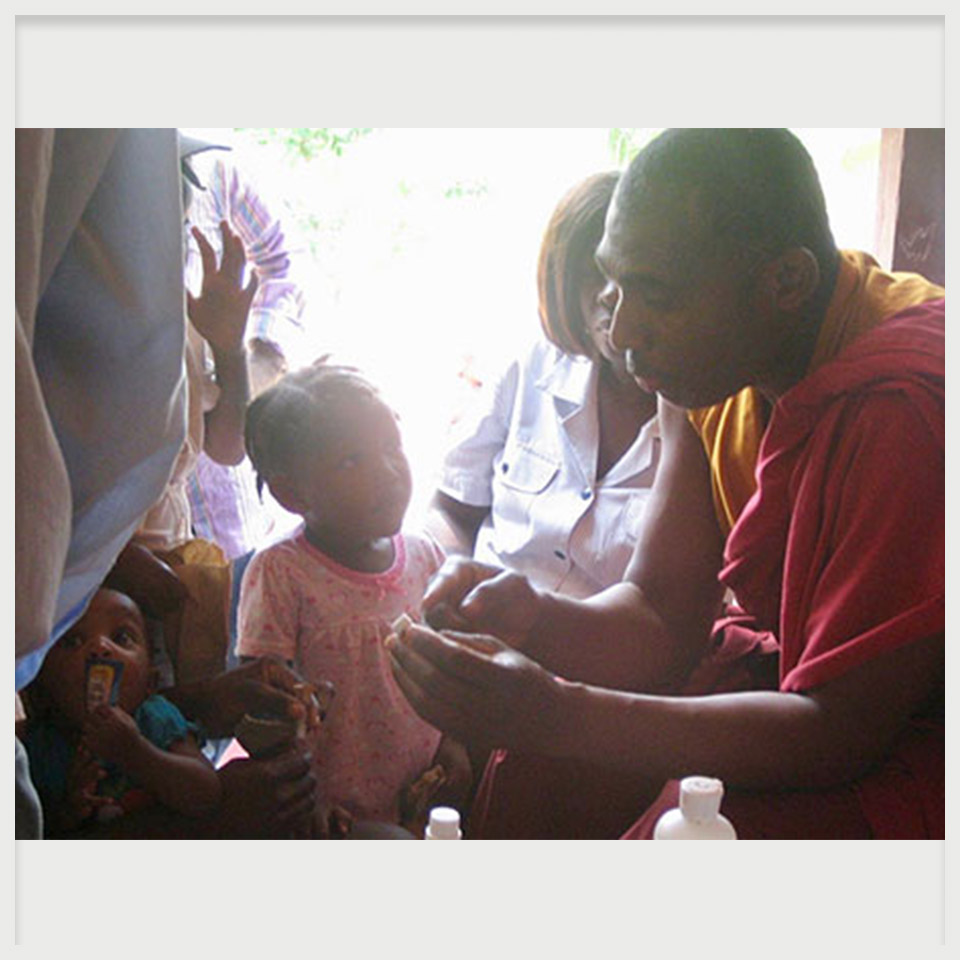
V: Do you have cases that stand out that you’d like to share?
J: One of our cases that I love to talk about is that of a 2-month-old baby boy who was brought in to us who had been declared to be dying of yellow fever. He had been born to a 15 year old teenage mother and the bonesetter explained to us that girls like that will not bond with their baby if they see that the baby is sick, as a protection mechanism they then drop the baby, they emotionally disengage, because they want to save themselves the heartbreak from having their firstborn die. The mother had literally wandered off doing other things and left the baby in the tent camp and the warden of the camp, Marie-Lucie who is now working for the clinic, brought in the baby for treatment. She explained that the baby is dying, that the family had scraped together their last bit of money to bring him to the hospital, that the doctor diagnosed yellow fever and explained that it would cost a million so to speak for medical treatment, which they didn’t have. What happens in Haiti in such a situation is that the doctors will say ‘go on, take the baby home it will die.’
The baby was brought to us at that point and he seemed to be in a very dire condition, hanging limbs, the eyeballs turned up, and I was there with this very difficult situation, in a screaming environment with hundreds of people standing in line, tasked with being given 5 minutes to diagnose and heal a dying newborn. One of the things we use very much in the clinic as a diagnostic tool is Chinese pulse diagnosis because then you don’t need language. One of our questions for people coming to work at the clinic is: what do you know to diagnose without needing language, because you won’t be able to speak Creole or French, most likely. So, anyone doing Chinese medicine will know how hard it is to take a good pulse with a newborn. I used a technique where I took his pulse – you take the pulse with the fingertip of just one finger and it was extremely wiry, a very typical high fever/heat pulse, and I had by that time noticed that I could get really good pulse readings on newborn babies, because there were so many, by just putting the vial with the homeopathic remedy in their other hand. Because they have this reflex of holding onto everything, they just grab the vial. When I put the Aconite in his hand the pulse went down, the heat pulse signs were seriously going down. I gave him one dose of Aconite 200C, which is a very, very classical high fever remedy and within a very short time, something like a minute or two, his flapping hands came back up, the whole tonus came back to his body and – bing! – he opened his eyes. I gave the lady who had brought him a tiny bottle containing a few drops of lemon essential oil and asked that she do some sponge baths to help open his pores and to help cool his body.
We had also asked the bonesetter to come and see what he would say and he had a completely different approach. He felt the baby’s skull bones and he diagnosed his skull bones of being stuck from hard labour and he did something that we would consider a craniosacral adjustment of the skull and then he said the baby needed a paste of castor oil and ground nutmeg applied to the central fontanella, which is what we did. Marie-Lucie brought him back the next day and he was well on his way to recovery. I like to give that story because it is a wonderful example when it comes to situations of extreme healing, how we use the modalities and co-treat with our Western way and the Haitian way.
V: What is it like to see so many patients in a day? In the context that most herbalists are familiar with and work in we have this idea that when you see someone you need 2 hours, that there must be detailed case taking and analysis, and so on. What is it like when you don’t have nearly close to that amount of time and may not even be able to communicate with your patients through language?
J: First of all I want to put this into context. We figured out very fast that anybody who was too intellectual couldn’t function in such an environment as a healer. If you ask yourself too many questions you won’t be able to function there and you have to make a lot of tough decisions before you even begin. Such as: there are things you are not going to treat, we didn’t do shortsightedness, diabetes, caries, and advanced chronic disease – which is not so prevalent in the first place because the population we were working with, the poor people in the ghettos, is what I like to consider a virgin population by and large. They had never had pharmaceutical drugs, vaccinations, operations, or anything else – they were just people who had never been medically treated, and they respond marvelously. They have what I would just call for now more superficial acute diseases and they respond very, very well. We are here to do emergency medicine. That was our focus going in; it was simply not possible for us to focus on treating chronic diseases.
That’s already the shift you have to decide on when you go into a disaster situation, to say we are doing emergency medicine. Since then the clinic has evolved because we have been there for a long time now and we do work on things such as very big difficulties in pregnancy, handicapped children, diabetes, breast cancer and other things like that. But at that time we were doing emergency medicine exclusively. We individualize, but you can’t individualize too much. There is something that I knew from Chinese medicine, which is the art of getting to the point in 3 questions. I told everybody you have to perfect that. You have to very quickly have the three questions that eliminate everything down to 2 or 3 remedies – then differentiate between them and you’re there so that you can on average treat a person in 5 to 10 minutes. I had to see 150 people a day, I was so exhausted that I couldn’t function anymore and we had not by any estimation seen everyone in line. The line looked to be the same length at 7AM as it did late in the afternoon when we finished, because we couldn’t go on. The other thing is the environmental context, with this brutal, damp, tropical heat and you’re being eaten by mosquitos top to bottom the entire time you’re sitting there. So for Jinpa and me, what we did was we just allowed ourselves to be in some kind of a trance or autopilot state using intuition. This is not the kind of intuition where I’m intuiting something that I have never heard about or have no experience with. I’m talking about intuition that comes out of a lot of knowledge and experience. For me, it was actually a really nice experience to be in a situation where I can’t intellectually think; I don’t have the time, everyone around me is screaming, I’m scratching so much I’m close to fainting, we were very hungry, we couldn’t eat, it was very dirty, it was extremely unsafe to eat, we couldn’t eat until the whole work day was over, there was no water… It was beautiful to see that when you have to, you can operate like that as a healer; I believe you have to be trained though. I don’t know if that could work if you had no prior knowledge of working in such an environment.
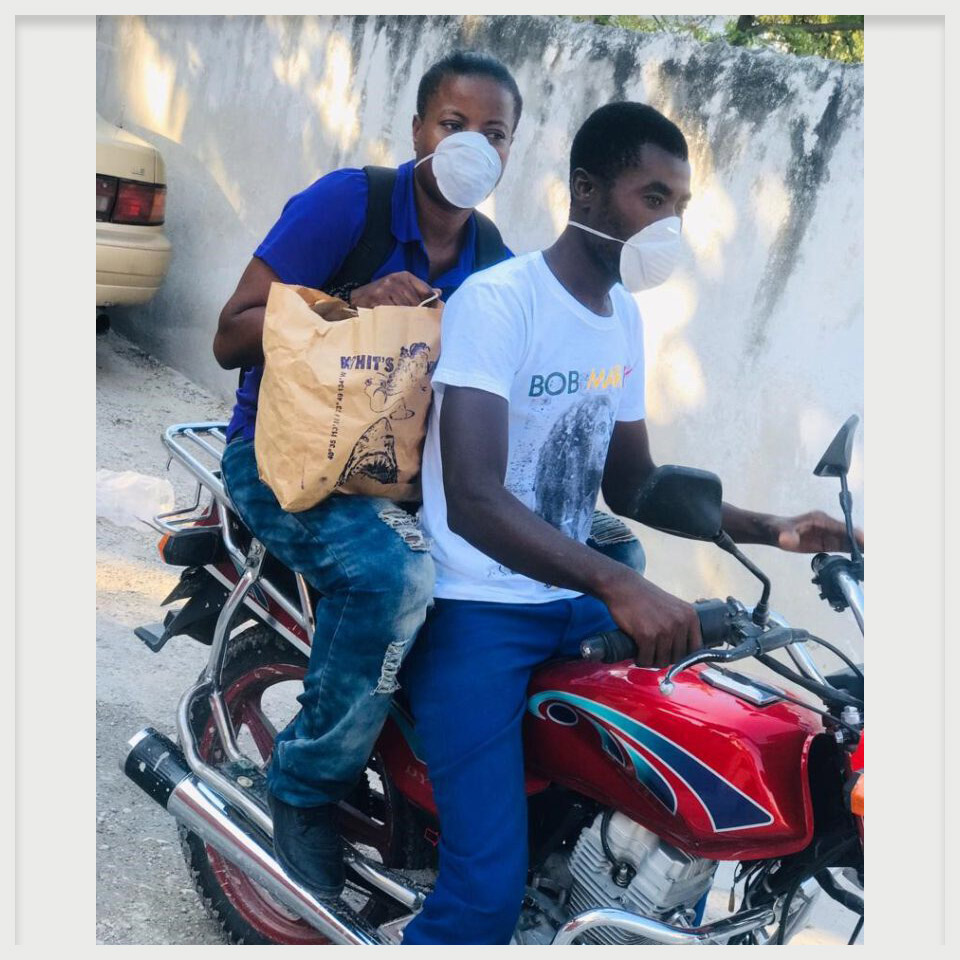 (Robinson takes Marie Lucie to treat a person struggling to breathe)
(Robinson takes Marie Lucie to treat a person struggling to breathe)
V: What can you tell us about the COVID situation in Haiti? You mentioned in the last newsletter that it doesn’t seem to be affecting the population very much at all. (As of May 27th, 2021)
J: COVID has done very little in Haiti up to now; they’ve started a large clinical trial to find out why that is the case. There are a lot of ideas that have not been verified, such as that there are very few enclosed spaces – the vast majority of the population essentially lives outdoors, the houses don’t have glass enclosing the windows and the doors are always open and wind is always blowing through the houses. Also, it has been discussed that half of the population is younger than 18, as well as other factors relating to Haiti being an underdeveloped country. From my own point of view, it is very well worth considering that they are so unspoiled by civilization in many ways, that the population tends not to suffer from deep chronic diseases. The kind of conditions that we are always pointing to as making a person vulnerable to COVID, don’t exist for the vast majority of people living in Haiti. This is a sugar producing country, even the poor kids do eat sugar, but they are so hungry so often in between that they do not have diabetes. No chance.
In the pre-COVID era, it was established basic epidemiology that you do not start to vaccinate while an epidemic is ongoing, because you’re essentially going to create mutation pressure on the virus. In this case, it is remarkable and frightening to me that now that vaccination has started in Haiti, although most people don’t want to get vaccinated as they are very suspicious against vaccinations, that now suddenly COVID is becoming a problem. There are rumors that now that the Brazilian variant has arrived it mostly hits the gut, so people get diarrhea like symptoms for 2 or 3 days and then are dead. I think it’s way too early to say much about it, so we are also right now quickly looking at how to adapt our protocol. Up to now we’ve had really amazing results [treating symptoms] just using essential oils of peppermint and eucalyptus, which are antiviral, antifebrile and bronchodilating, so I think peppermint is still a good idea for a virus affecting the gut, but we may have to rethink things. I’m just waiting to get past the rumor stage, so we can differentiate between what we are hearing about the symptom picture and what is actually going on. We need to get things substantiated, because the political situation is completely corrupt and malfunctioning at this point. People are not even sure that what is now being said about COVID in Haiti is not just a series of rumors that the government has put out in order to manipulate people in some way – the political situation has deteriorated to such an extent.
The rumor that suddenly there are COVID cases and people are dying from it, makes people not sure that this is not a way of scaring them into vaccination and whatnot… It is very hard to verify a lot of things in Haiti because there is no free press, there is no functioning government, it is a complete mess.
V: There seems to be a climate of distrust and suspicion that moves in many different directions.
J: Yes, and it is well justified and well founded distrust.
V: What can you tell us about traditional Haitian herbalism, and some traditional herbs that are commonly used?
J: Traditional Haitian herbalism is largely rooted in African herbal traditions. You find a lot of similar ways of thinking, similar medical understanding, as you would find in Africa. So for instance there’s the bonesetting aspect, which is very strong in African traditional healing systems, and it is practiced in a similar way with the patient just lying on a mat on the floor and the healer will use his or her feet to push the bones into place. Diagnosis very much has to do with looking at the state of the blood. There’s a strong emphasis on the evaluation of the state of the blood, and there’s some overlap with other traditional systems in this respect. They will think in terms of: is the blood good or bad, does the blood rise, is the blood curdling – when it is bad, the blood has a tendency to curdle. Is the blood curdling because of things the person ate and ingested or because the emotions are going overboard? You have this situation with a lot of heat and sweat and really explosive emotions. Many Haitians are very volatile emotionally and can get unbelievably angry, and in the those moments there is, for lack of a different word, a phenomena where the blood curdles and you can literally see it where there are stains under the light part of the skins on the palms of the hands. We might want to intellectualize and say there’s microscopic bleeding and thrombosis. That’s a big warning sign and they need to rush the patient to a clinic to have them treated immediately, otherwise they can die. We’ve needed to deal with that at the clinic also.
Our bonesetter and Jinpa grew up in the culture and gave us crash courses on this, because you would get patients who sit in front of you and they would say things like, ‘I have bad blood.’ Even when they say ‘I have anemia’ it means something different than what we understand by the word. We mean not enough red blood cells, whereas they basically mean not enough of whatever good thing there could be in the blood as a consequence of malnutrition. They may have enough red blood cells, but it really means I don’t have sufficient blood sugar, fats, proteins, and all the rest of what is essential to me – I’ve been hungry for a long time. It was very necessary for us to also understand the bases of Haitian herbal medicine to have a proper interface with the people who came to us speaking from that place of understanding.
V: Are there any particular herbs that you’d like to discuss which are widely used traditionally?
J: Haitian herbalism [and] Haitian culture is of course a mix which draws from the original native [Indigenous] people who lived on the island, then the African slaves who came from many different tribes and what would now be the modern countries of Africa, and the cultures of the Spanish and French conquistadores. It is very much a cultural melting pot, which is also reflected in the use of the most common herbs or medicinal plants in Haitian herbalism today. Many of them are plants that came with the conquistadores, or that were otherwise brought in; such as cacao (which would have been local), orange leaf, lemon, the citruses, peppermint, basil, cinnamon leaf – I even saw loosestrife – and chamomile flowers which are available in the stores. None of that we would expect when we ask the question about commonly used herbs in the Haitian tradition. I was frankly also surprised. There is, if you wish, a full integration of European style herbalism in popular culture and of course they also use the fruits and veggies that are around such as garlic, papaya, and things like that. Papaya for instance, because it is rich in digestive enzymes, is used as a poultice on wounds. The men also use papaya seeds – and this is really more traditional – because they have a jelly like cover; the papaya seeds, they look like sperm, and based on the doctrine of signatures/language of plants, the men eat the seeds in order to increase manliness. You also have Jamaican dogwood and you will find guys by the roadside with huge glass containers full of Jamaican dogwood soaked in local cheap rum. You can go to them to get your shot glass full for your virility, and things like that. Other examples that would really be more local is for instance the use of boiled guava leaf, which is astringing. The taste frankly reminds me a little bit of blackberry leaf tea, so they use it for diarrhea and also to astringe the guts. They have a kind of a plant which is a creeper with fleshy heart shaped leaves, a kind of liana – they call it in French, liane molle. The leaves are soft and can be cooked to a kind of spinach like consistency, and this is used as a blood builder, for anemia, but also as a demulcent.
Most notably for me is the use of nutmeg. We discussed the use of nutmeg in the clinic in our last newsletter, and I want to encourage people to sign up for the newsletter because we always include case histories and new aspects about healing plants. I try to make it an educational newsletter for people who are plant healers. Ground nutmeg is used very much in Haiti for paralysis type symptoms related to strokes. What is very interesting is that, as nutmeg is a strong remedy, those very types of symptoms will develop in someone if they overdose on it. We find ourselves back at the alchemical truth that a poison can, in a tiny amount, heal what it can produce as a symptom. That principal is the basis of homeopathy, of course [the homeopathic law of similars: Similia similibus curantur, “likes are cured by likes”]. Nutmeg under the Latin name Nux moschata is a homeopathic remedy that will cure all those very same symptoms so I thought it was very cool as a homeopath to see that the local herbalists use nutmeg powder, a pinch under the tongue, in exactly the same way we would use Nux moschata in the potentized fashion.
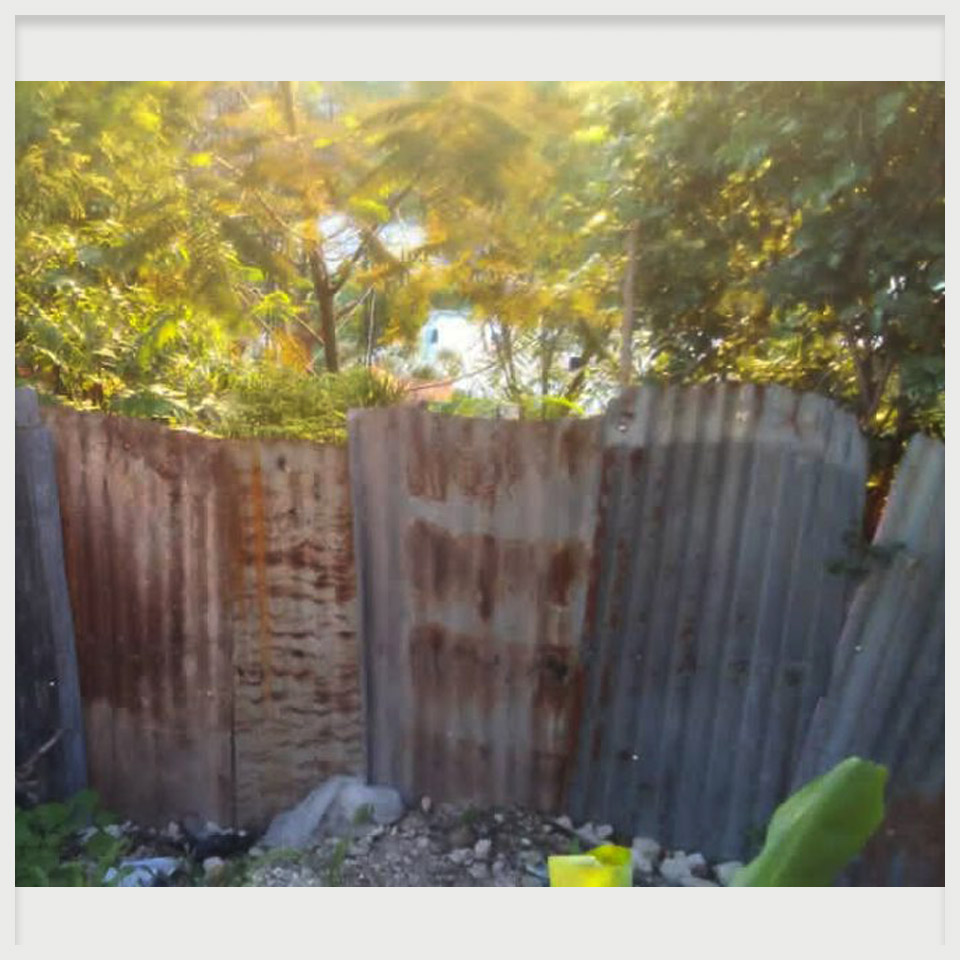
(The Herb Garden Enclosure)
V: Is there anything else you’d like to address? Are there ways that people can help through donations in any other way?
J: Our clinic has really only survived because people have always taken a real interest in our work and donated basically all of the medicines. All of the herbs, dried herbs, tinctures, homeopathics, essential oils – it’s all donated and people can send us an email through the website if they have a question about what we would like to be sent in terms of clinic supplies and where to send it. We ship things mostly from New York, but sometimes also from Europe. That is a huge help because none of us are paid. We are all volunteers. We collect cash to pay for the costs of shipping and everything goes straight to Haiti. We are trying to be the slimmest organization possible, one where no cent is lost. We do pay the people on the Haitian side because they have no other means of income – unemployment is probably between 80% and 90% in Haiti and we pay them $40USD a week, we don’t even know how they can survive on so little, so do not think that they can go out and buy themselves a mansion, they cannot. In fact, Marie-Lucie, now that we can’t run the clinic out of the usual location because of the COVID curfew, is running it out of her home which is kind of a shack. Just a couple of concrete blocks put together with a little bit of corrugated tin on top. Any donation of cash, or natural remedies is very, very welcome. Use your connections, see if you know somebody who owns a health food store, a distiller, other such companies. We take things that have been expired, sometimes we rebottle them or we take things that have reached their sell by date. Just contact us if you have a question and we would be so thrilled. This is truly the herbalist’s and aromatherapist’s clinic, it has been fueled really by their efforts and donations.
1 Readers interested in further exploring the science of homeopathy can refer to the award winning homeopathic medical research undertaken by Professor George Vithoulkas [here]
If you would like to check out more information about the Clinic or learn more about how you can help, please visit www.haitinaturalclinic.org
